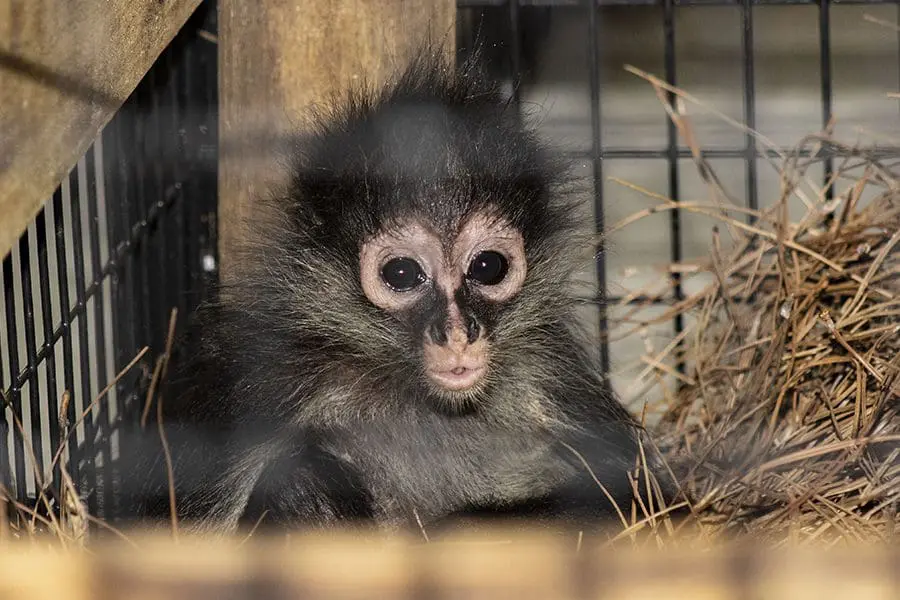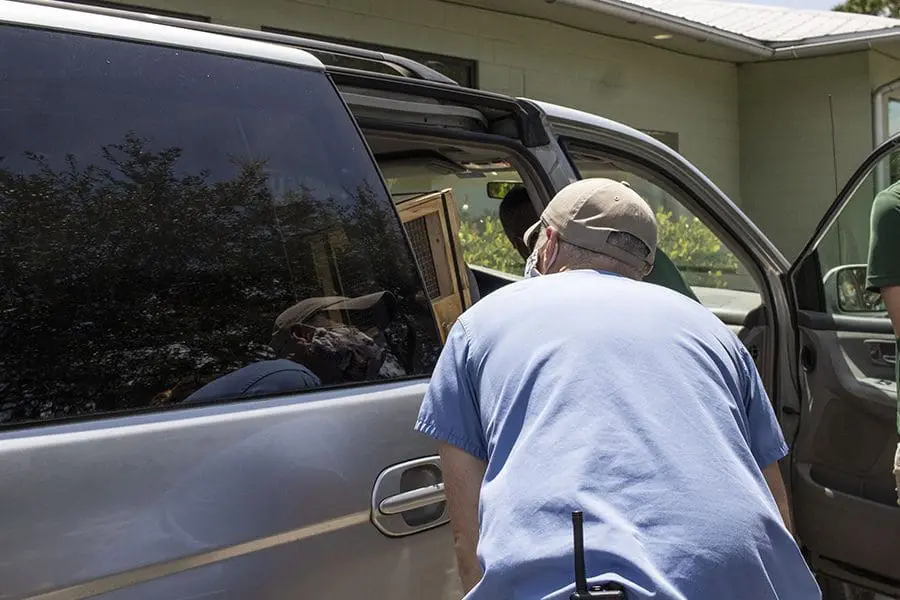

J is a tiny little guy!
You may remember in September 2020, we brought in a young spider monkey that had been confiscated at the United States-Mexico border. Later named Mateo, this little guy was cautiously introduced to our spider monkey troop in Rainforest Revealed and eventually became the “shadow” of alpha male Shooter, now a fully integrated member of the troop.
Last month, we received a call regarding a similar situation. A young black-handed spider monkey was confiscated at the United States-Mexico border after someone was caught attempting to smuggle the animal into the country.
Affectionately named “J” after his rescuer, the spider monkey was taken to a CDC-approved quarantine facility in Texas, where he underwent a mandated quarantine and testing. Animal care professionals deemed the spider monkey unsuitable for return to the wild. Because of our long-standing history with this species and success in integrating Mateo with our multigenerational troop, we were chosen to be his “forever home.”
On August 31, two of our animal care members picked up J and brought him to the Zoo. Upon arrival, our veterinary team visually examined him and determined that he was approximately five months old. He was placed in an area of Rainforest Revealed where he could see, hear and smell the rest of the troop. Our plan was simple: integrate J the same way we did Mateo.

Dr. Zachariah takes a look at J upon his arrival to the Zoo.
J quickly settled into his new habitat and over the past couple of weeks, has been introduced to Daisy, Tika, Blue and Mateo, several of our younger spider monkeys. We have seen lots of great behaviors between the bunch. Because of this progress, our animal care team will slowly expand the area they can explore during these supervised play sessions and we hope to start introducing more members to J in the very near future.
Dr. Darby Proctor and Dr. Kate Talbot of Florida Institute of Technology, their students and our keepers have tracked the troop’s behavioral dynamics for many years, and they are studying the relationship-building process to learn more about the social structure of spider monkeys. They studied Mateo’s story and will continue to learn more as they watch J form relationships with the rest of the troop.
The illegal wildlife trade is one of the world’s largest black-market industries—along with drug, firearm and human trafficking—and one of the main reasons why the black-handed spider monkey is endangered. If you’d like to help put a stop to this devastating practice, check out the Wildlife Trafficking Alliance’s tips for consumers and Legislative Action Center.